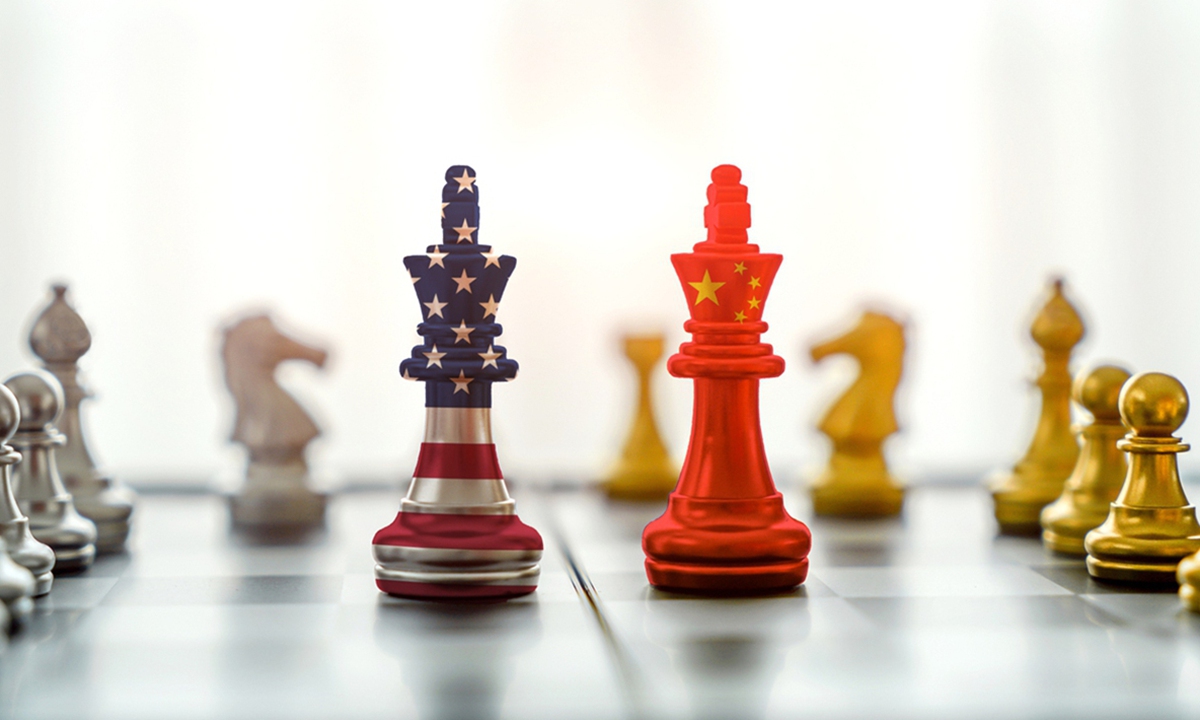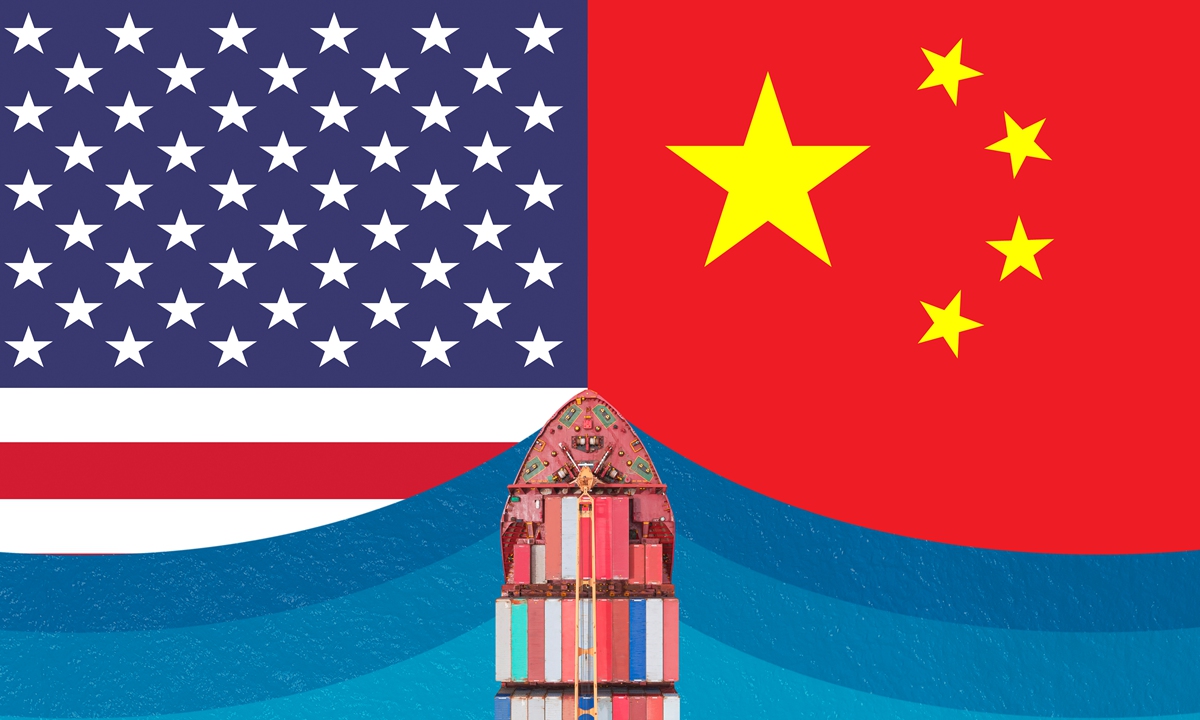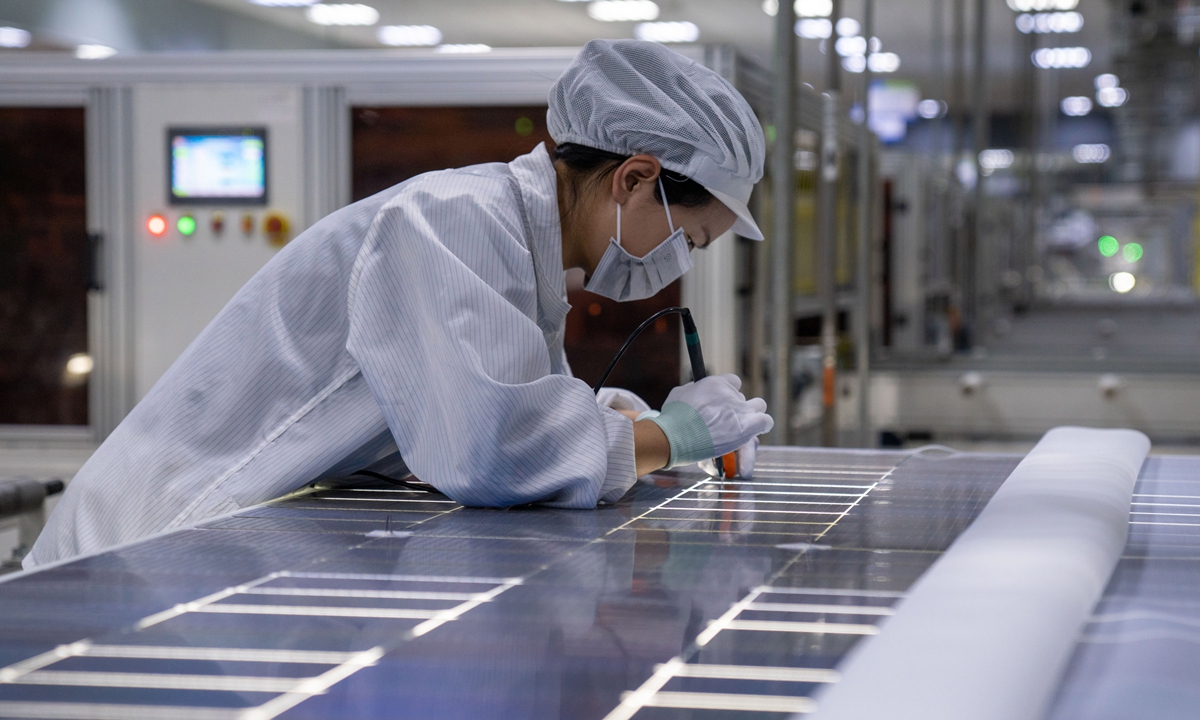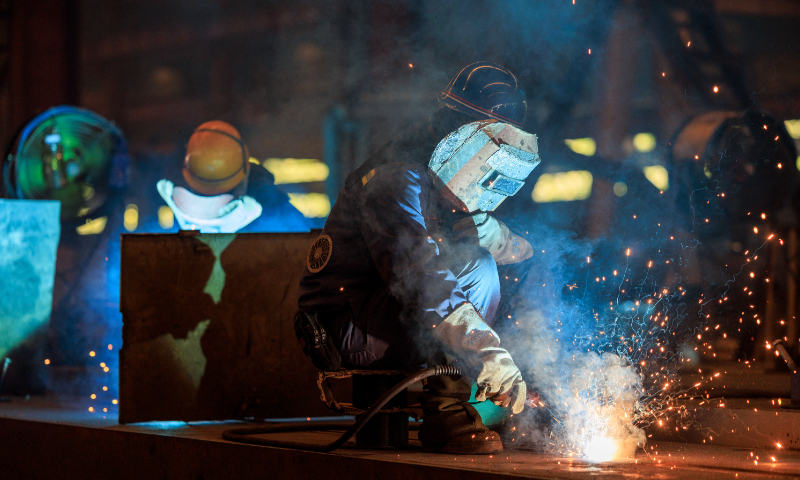Biden’s new tariffs on steel, aluminum a politicized action disrupting international supply chains: expert

China US
Newly announced tariffs by the Biden administration aiming to stop Chinese steel and aluminum flowing into the US via Mexico is yet another move demonstrating that the US has politicized trade and economic issues, Chinese observers said on Thursday, noting that such actions disrupt global supply chain.
In follow-up to a sharp increase in US tariffs applied to Chinese metal products in May to please US steelworkers in the swing states, US President Joe Biden announced new tariffs on Wednesday aimed at fixing "loopholes" on Chinese metals that came into the country rerouted through Mexico with duty-free access via the North American trade pact.
Steel arriving from Mexico will be taxed under "Section 232" tariffs at 25 percent unless it has been melted and poured in Mexico, Canada or the US, according to media reports.
Aluminum products from Mexico will be hit with a 10 percent tariff if they were smelted or cast in China, Belarus, Iran or Russia.
Mexico has agreed to require importers of steel products across its borders to provide more information on the country of origin of these products, Biden and Mexican President Andres Manuel Lopez Obrador said in a joint statement.
Chinese observers said the new tariffs, which are in clear violation of the WTO rules, is another demonstration of the Biden administration's efforts to politicize trade and economic issues, acts to disrupt global steel and aluminum supply chains and won't reverse the falling competitiveness of US domestic steel and metal industries.
Chinese steel and metal products are highly sought after in the world not only due to their low prices but also for the first-rate services offered, they noted, refuting claims made by the US that the competitiveness of Chinese metal products comes from "subsidies" or "non-market practice."
They noted that the newly announced tariffs are largely symbolic as the US is not a major market destination for Chinese steel and aluminum products and it was simply another case of US politicians playing the anti-China card.
The new tariffs follow earlier rates hikes in May on a broad array of strategic goods from China, including steel and aluminum, electric vehicles, batteries, semiconductors and critical minerals. Metals from China are already subject to 25 percent "Section 301" duties.
"With the erection of trade barriers in the US, only 1 percent of Chinese steel exports were sold into the US in 2023. Counting Mexico and Canada altogether, such exports only accounts less than 3 percent of total Chinese exports," Wang Jianfu, assistant to the general manager at Shanghai-based consulting firm Steelhome, told the Global Times on Thursday.
"China's steel exports surge is demand-driven, not simply because its price advantage. Customers like to choose China as a supplier because we offer a convenient, one-stop shopping experience with products meeting various requirements at all price levels," Wang said. He noted that the comprehensive price of Chinese steel products is roughly the same with that of the South Korean steel exports and Chinese steel exporters nowadays have no incentives from export rebates.
Volumes of steel imports from Mexico originating elsewhere remained small in 2023, making up only about 13 percent of the 3.8 million tons of steel imported from Mexico, according to Reuters, citing US Census Bureau data.
The new rule came as US officials continue to hype about concerns about China's "excess industrial capacity." A rhetoric that has been rebuked by various sources from around the world since its conception.
The US may need to take further and more creative actions beyond tariffs to protect US industries and workers against China's growing "excess industrial capacity," US Treasury Undersecretary for International Affairs Jay Shambaugh said on Wednesday.
The move taken by the Biden administration will not help the competitiveness of the US steel industry as its progress is grounded by high production costs and mundane quality, Wang said.
Last year, boosted by a surge in demand post-pandemic and a supply bottleneck in global steel mills, China exported 90.26 million tons of steel products, representing an annual increase of 36.2 percent.
Global Times



